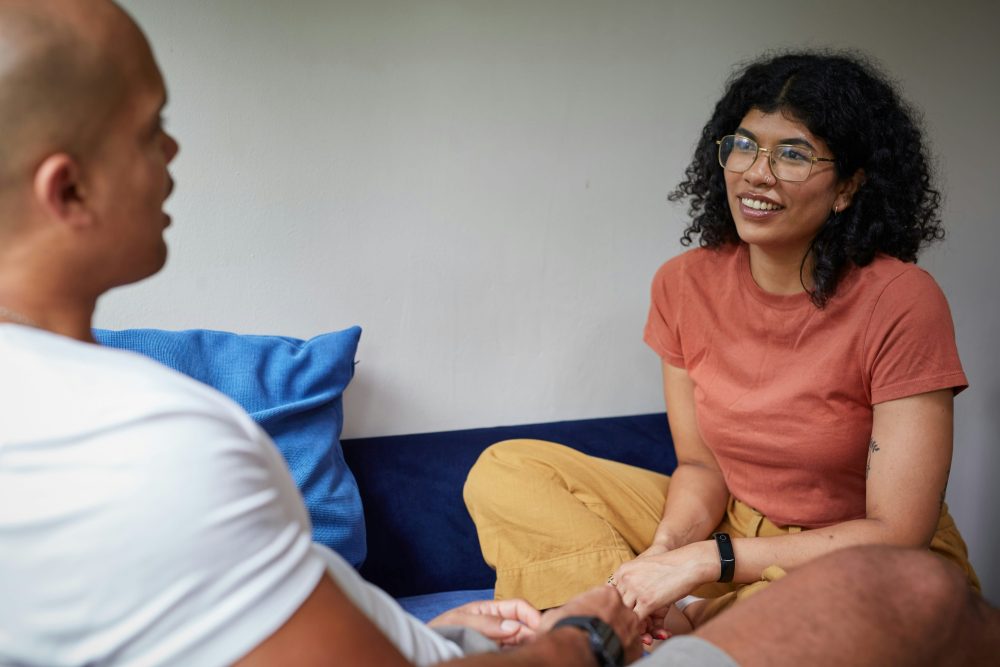
While it is generally unhelpful to deal in absolutes, here’s one to consider: no academic program teaches everything we need to know about ministry. A master of divinity degree takes three or four years. If you top it off with a doctor of ministry degree, you’re looking at another three years of theology, preaching and leadership development. Still, after completing every course that’s required for ordination and graduation, there is more to learn.
Faithful ministry resides at the intersection of knowledge and wisdom. Mentorship bridges the two and offers relationships that make it possible for mentees to flourish.
Let’s be clear about how leaders grow and develop. Formal theological education does play a critical role in shaping our hearts and minds for ministry. But beyond the rigor of intellectual training, having a good mentor is a gift. The relationship is so valuable that we often cannot measure its full worth until we look back on the experience many years later.
The word “mentor” is passed down to us from Homer’s “Odyssey.” Mentor was the name of the advisor to Odysseus’s son Telemachus and was really the goddess Athena in disguise. A mentor provides emotional support, professional guidance and perspective that comes from years of experience. It is possible, and perhaps necessary, to have multiple mentors. Some mentoring relationships are narrowly focused on one aspect of ministry, like preaching. Other mentors may be able to provide guidance in several areas, such as pastoral relationships, leading change, family dynamics and vocational discernment.
How have you benefited from mentors in the past? How might a mentor be helpful to you in this season of ministry? Most mentors don’t volunteer for the role. We need to seek them out. Who do your peers recommend? Identify people you trust to serve as wise guides. Ask them if they would be willing to connect with you monthly, bimonthly or even quarterly. Thanks to video technology, a mentor doesn’t even need to live nearby. If you aren’t sure where to begin, consider this week’s resources as you search for a mentor.
Resources
What does mentoring look like?
A longtime friend resisted the title “mentor,” but that’s what he was to many, writes the executive director of Leadership Education at Duke Divinity.
By David L. Odom
‘What Makes You Come Alive: A Spiritual Walk With Howard Thurman’
Howard Thurman lived a life full of mentors and mentorship, says the author of a new book in this excerpt.
By Lerita Coleman Brown
Subverting assumptions about age, experience and wisdom
A priest anticipating her last decade in full-time ministry writes about the intentional choice of a mentor who is a generation younger.
By Rhonda Mawhood Lee

Here’s what I’ve learned from working with my mentors
Yes, it would be fun to be trained by Yoda on the planet Dagobah. But it’s the less eccentric elements of humility, vulnerability, honesty and wisdom that make for a fruitful mentoring relationship, writes a young pastor.
By A. Trevor Sutton
Before you go…
Mentors have played a critical role in my formation in ministry. Wise and generous people I’ve worked with have taught me how to lead meetings, manage a church budget, supervise staff and preach a more compelling sermon. I have known many of my mentors personally. I’ve also never met a few of my mentors. These are the leaders I’ve taken the time to study from a distance. I’ve read their books and listened to their sermons. I’ve visited their churches. Even though we didn’t know each other personally, I still place these people in the cloud of witnesses who have tutored me in pastoral leadership.
And, like many of you, I now realize that I had a few ministry mentors before I accepted my call to ministry. My childhood pastor was a good friend of my dad’s. Even though I was a child, he always took the time to listen to me. Today I try to follow his example when engaging children in the church.
I still need mentors, but I also hope that I can be a mentor. I’d like to pass along some of the good lessons that I’ve learned along the way. I appreciate everyone who has done the same for me.
You can always reach me and the Alban Weekly team at alban@duke.edu. Until next week, keep leading!

Prince Rivers
Editor, Alban at Duke Divinity



